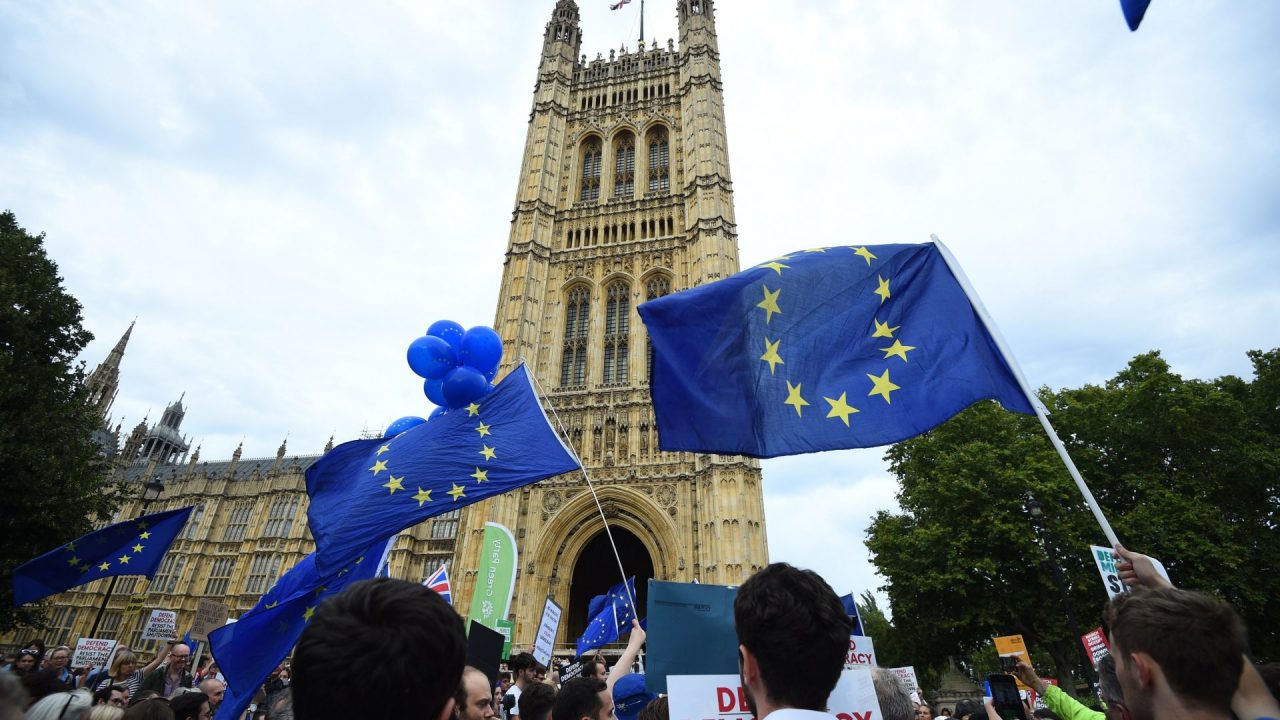
By Dean Turner, Economist, UBS AG
- Boris Johnson has announced that the government is preparing for a Queen’s speech on 14 October. While there is nothing controversial about such an event in normal times,
these are not normal times. - The Queen’s October speech is being combined with the prorogation (suspension) of parliament for a little over a month beforehand. In effect, this will further limit the time
available to MPs to block a no-deal Brexit. It forces their hand, compelling them to act sooner and more decisively if they wish to do so.
UK Prime Minister Boris Johnson’s government has announced that parliament will be prorogued (suspended) from mid September. It will resume on 14 October with a new legislative agenda to be presented in a Queen’s speech.
The initial interpretation is that the government is trying to prorogue parliament to force through a no-deal Brexit. But it is not clear that this is the case: MPs will have time to debate Brexit both before and after this period. Moreover, the government has been careful to ensure it does not fall foul of previous legislative efforts to prevent prorogation (the Northern Ireland bill passed in July). However, in effect, it will limit the time the opposition MPs have to legislate against a no-deal Brexit.
On 27 August they agreed to a legislative strategy to that end, so this announcement should be seen in this context. It doesn’t mean the opposition cannot legislate to prevent a no-deal Brexit (indeed, some observers have interpreted this move as acceptance
that parliament could do this); it just makes the task harder.
This likely means that the opposition may instead have to examine the legislative route more closely or ultimately push for a vote of no confidence in the government to prevent a no-deal Brexit. A no confidence vote is risky, as the opposition will need to draw on the
support of Conservative Party MPs. They may be reluctant to do so if Labour Party leader Jeremy Corbyn insists on heading any caretaker government.
The Queen’s October speech will further limit the time available to MPs to block a no-deal Brexit. It forces their hand, compelling them to act sooner and more decisively if they wish to do so. Our base case is that a no-deal Brexit will not occur on 31 October and a general election will follow. This news does not alter this view. If anything, parliament’s hand being forced could bring the current impasse to a conclusion sooner than previously thought. Meanwhile, sterling assets are likely to remain volatile.
Tradersdna is a leading digital and social media platform for traders and investors. Tradersdna offers premiere resources for trading and investing education, digital resources for personal finance, market analysis and free trading guides. More about TradersDNA Features: What Does It Take to Become an Aggressive Trader? | Everything You Need to Know About White Label Trading Software | Advantages of Automated Forex Trading



































